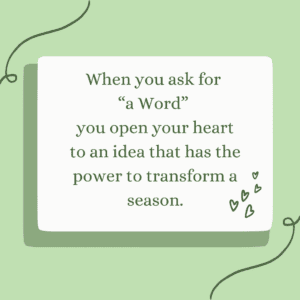
In the monastic tradition, the beginning of a new year often invokes the asking and giving of a “word.” Unfortunately, my Spiritual Director passed away this year and I’m on my own in the discernment of a word. The last word he gave me was “liminal.” Liminal is about being in one state while transitioning into another. I’m not there anymore, I have transitioned into that new state. Yet the word “liminal” was a gift to open my heart and transform my thinking while I went through a period of deep struggles.
For this season moderation keeps coming to mind. I have always struggled with a lack of moderation. I over fill, I over use, I over share, I drive too fast, I overdo most things, generally being driven to achieve and get things done. My younger sister shares this issue – so I wonder “what happened in our childhood that caused this lack of moderations?”
What is at the root? I look at my teapot. Tea spilt on the tray and my tea cozy is stained with overflowing tea. Too much cinnamon added this morning – carelessly. It’s everywhere. My chronic back pain is from insisting that I do things myself, carry too much, refusing to ask for help. I over cook most food – always, I spill – always. It’s like I don’t know when to stop or why I should. Is there some odd fear of not getting enough? missing out? Is it merely an issue of not paying attention? Or am I just slopping? (as my father always said)
My massage therapist suggests “balance” as my word. But I want to off-load things, most things. I don’t want balance, I want less. So, I asked Siri, “define moderation.”
She replied in her dry monotone voice: “Moderation is the avoidance of excess or extremes. The action of making something less extreme.”
Actively making things less extreme! Ok, how do you do that? Maybe I do have some control over this. “Avoidance of” and “the action of.” To avoid and to take action. As I’ve been musing with this idea, it is curious that the word moderation showed up in a reading in church a few Sundays ago.
“Let your moderation be known unto all mankind.” Phil 4:5
To be known for my moderation. That’s a lovely thought, but it will take some work. So, in we go – a deep dive into original languages and other translations.
The original Greek = epieikes; seeming, suitable, equitable, fair, mild, patient, and gentle. Humm, gentle. Not a word that I usually use to describe myself. Other English versions of the Bible translate this work epieikes into graciousness, forbearance, considerate, gentle behavior, gentle spirit, and simply gentle.
A tall order from someone who struggles to NOT overfill her tea pot. But as this word persists in my consciousness, I will embrace it. This will involve slowing down, being present, and working to avoid excesses and extremes. I’m not sure what this means, but I know this is possible with the help of a loving God who does desire moderation for me. A gift for a new year, help to become more moderate, to become more gentle, ultimately to become more Christlike.
What about you? Have you mused on your word for the next season? Reach out to someone who knows you. Those in our lives often know what we need before we know ourselves.
 I don’t like categorizing a year as being a “good” or a “bad” or recounting “who we lost this year.”
I don’t like categorizing a year as being a “good” or a “bad” or recounting “who we lost this year.”
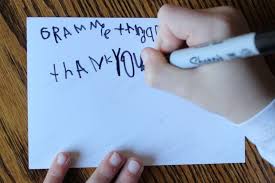 I have had an odd relationship with the idea of thankfulness. My earliest memories of being thankful came wrapped up in the torturous duty of writing thank-you notes. I know my young mother was trying to instill within me a sense of being thankful. But the task was always tinged with duty and properness. I recall sharply her edits of my thank-you notes, “Write it again.”
I have had an odd relationship with the idea of thankfulness. My earliest memories of being thankful came wrapped up in the torturous duty of writing thank-you notes. I know my young mother was trying to instill within me a sense of being thankful. But the task was always tinged with duty and properness. I recall sharply her edits of my thank-you notes, “Write it again.”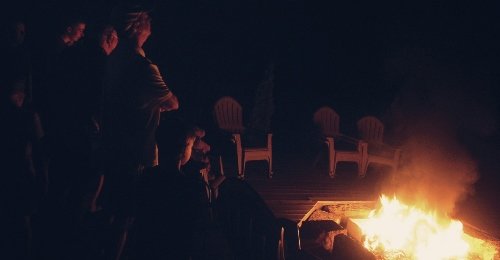 these practices, so this summer I’m gathering a group to practice listening to God. We’ll meet in north Orange County on Thursdays from 7 – 9pm.
these practices, so this summer I’m gathering a group to practice listening to God. We’ll meet in north Orange County on Thursdays from 7 – 9pm. My earliest memory of the word LOVE, is listening to my mother sing along with singer/song writer, Jackie DeShannon. “What the world needs now, is love, sweet love. It the only thing that there’s just too little of. What the world needs now, is love, sweet love. No, not just for some, but for everyone.”
My earliest memory of the word LOVE, is listening to my mother sing along with singer/song writer, Jackie DeShannon. “What the world needs now, is love, sweet love. It the only thing that there’s just too little of. What the world needs now, is love, sweet love. No, not just for some, but for everyone.”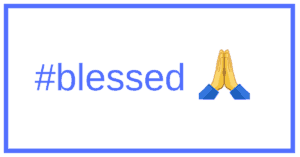 What is it about this idea or word? For many, the use of the word BLESSED, scratches someplace inside. I’ve spent some time this weekend reading and contemplating why the phenomenon exists, and why many of us struggle when we hear others use the term.
What is it about this idea or word? For many, the use of the word BLESSED, scratches someplace inside. I’ve spent some time this weekend reading and contemplating why the phenomenon exists, and why many of us struggle when we hear others use the term.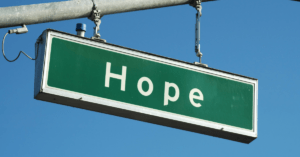 We don’t really use this word – HOPE – too much, anymore. I mean, we might hope to get into this school, or hope we land that job, or hope our health improves, or hope we meet that perfect person.
We don’t really use this word – HOPE – too much, anymore. I mean, we might hope to get into this school, or hope we land that job, or hope our health improves, or hope we meet that perfect person. process. It isn’t difficult, but it takes work. Unlike most of our lives today, you cannot get the most recent app and begin the process.
process. It isn’t difficult, but it takes work. Unlike most of our lives today, you cannot get the most recent app and begin the process.